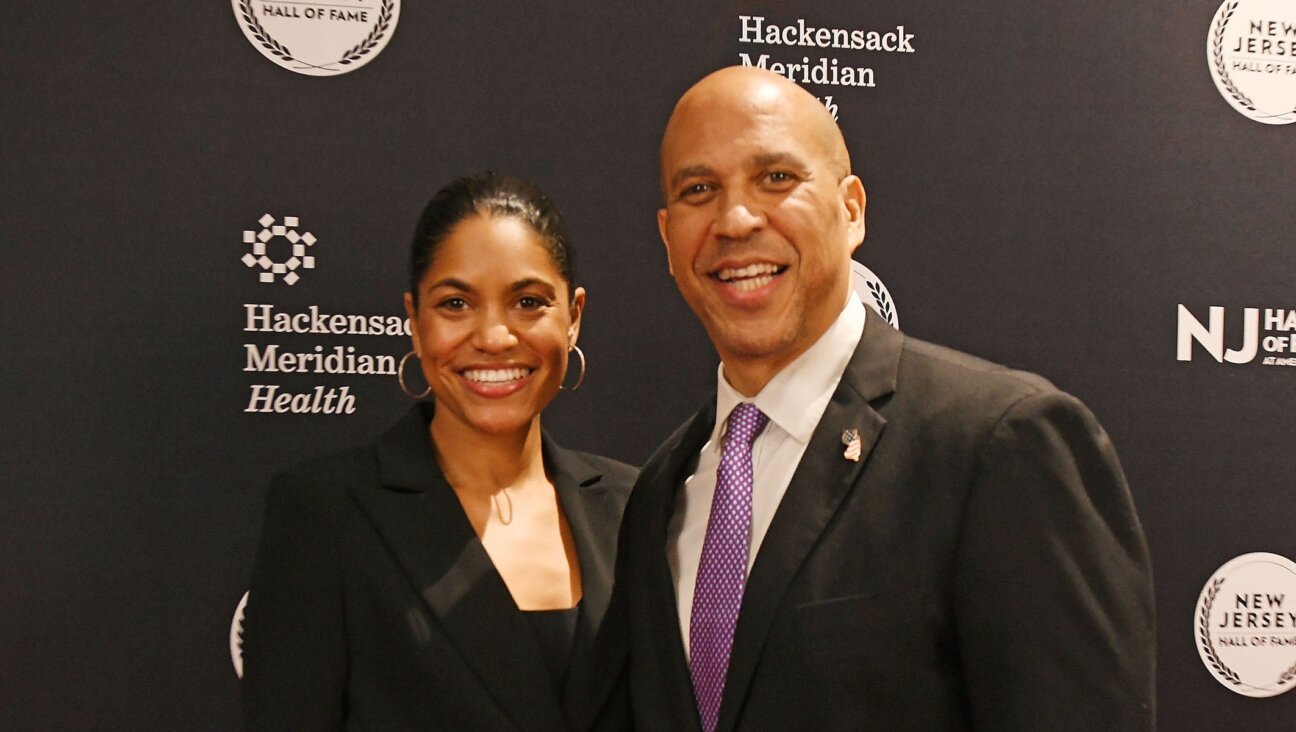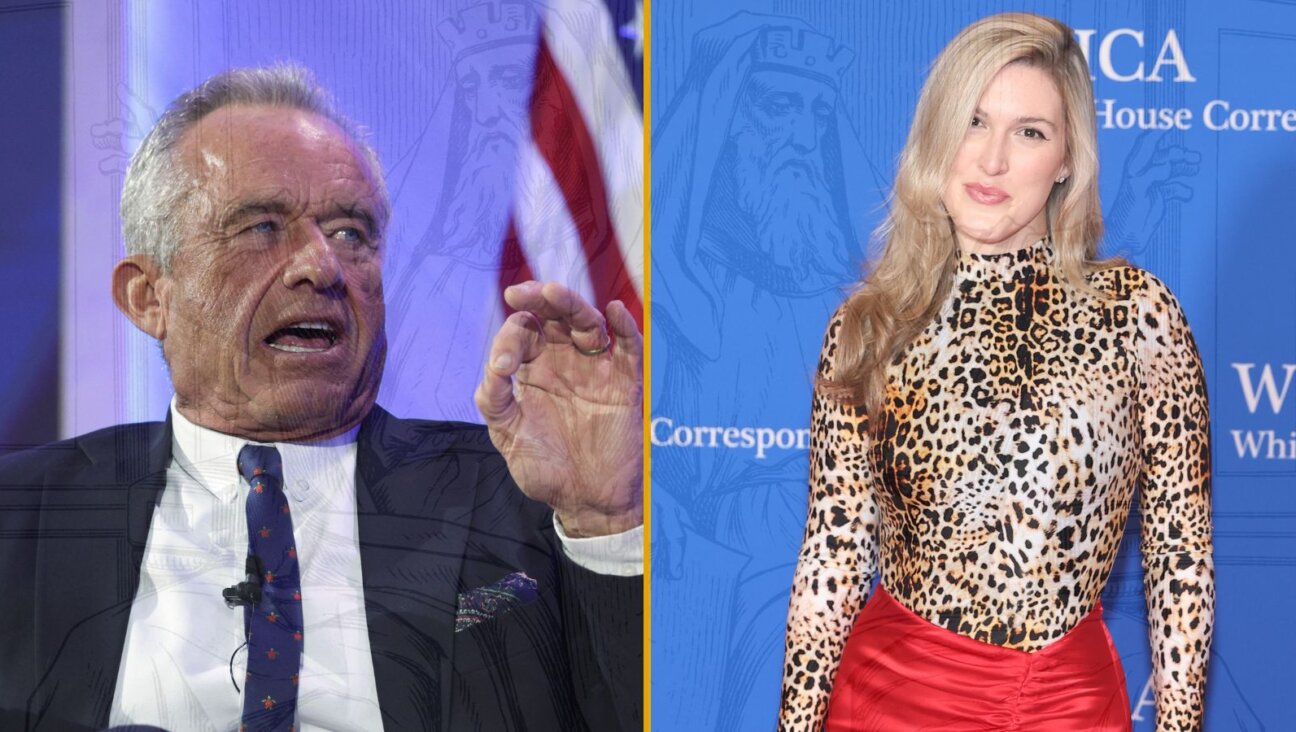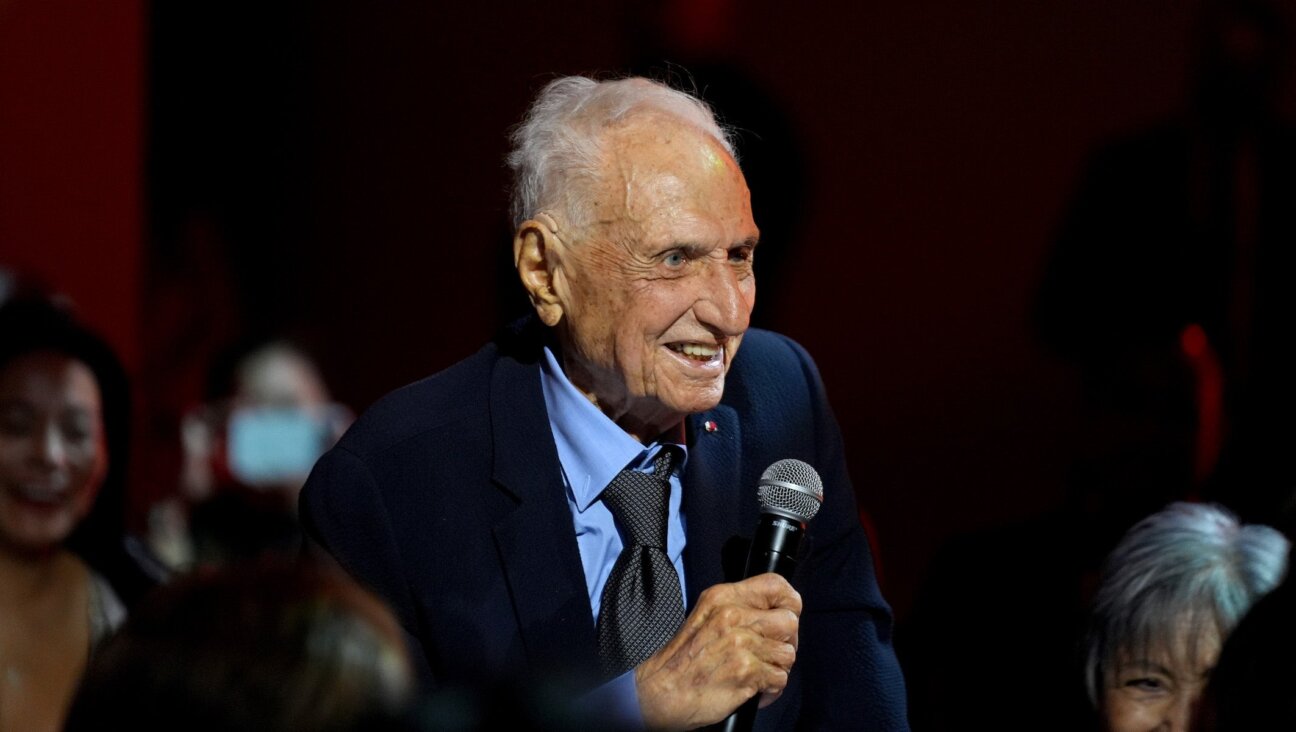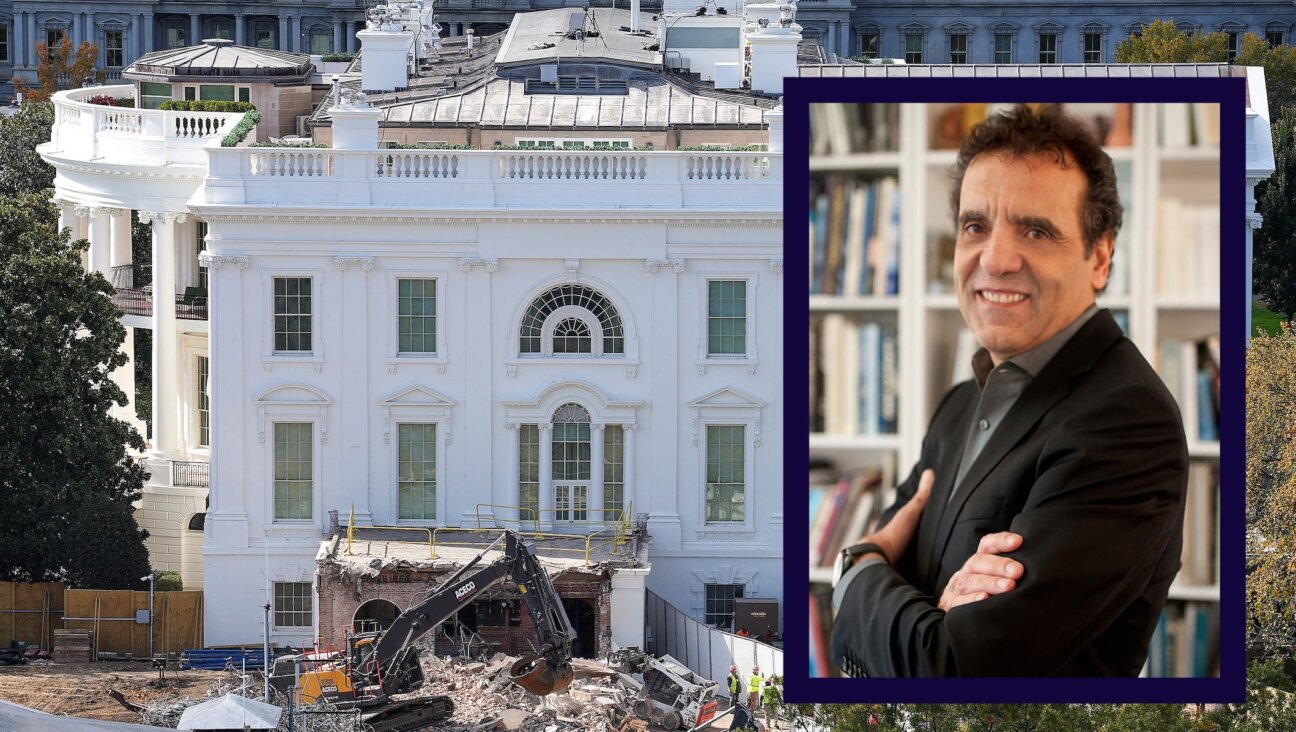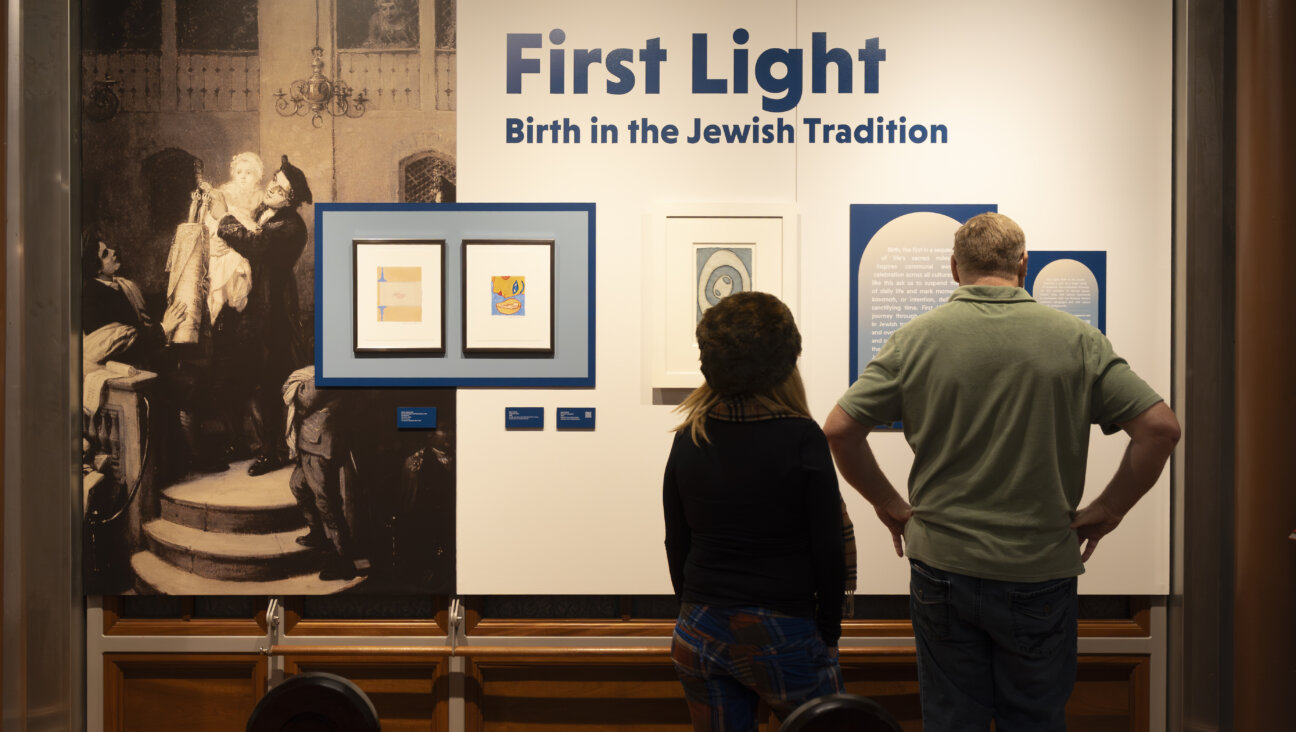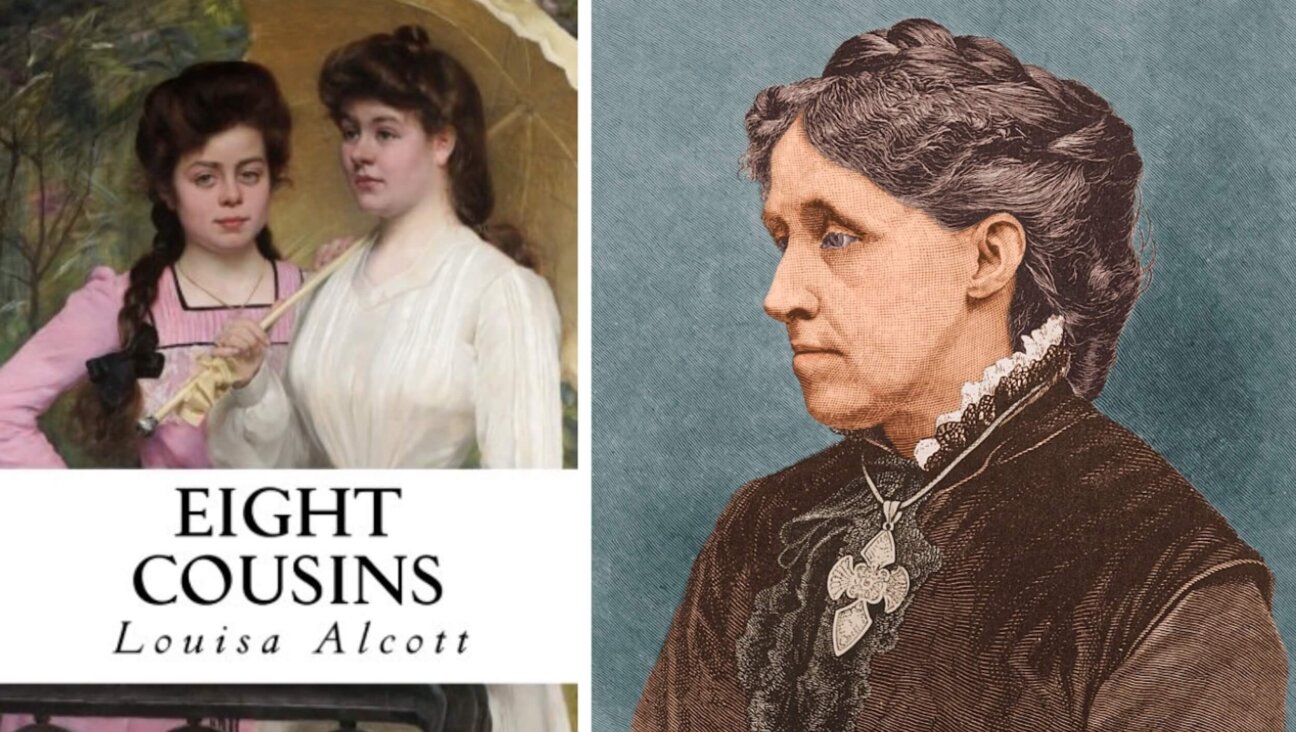Rethinking Orthodoxy in Trump’s America

Image by Getty Images
David Weiss Halivni, a renowned Talmudic scholar, once quipped that he could not pray with the people with whom he talked, and could not talk with the people with whom he prayed. In other words, those with whom he could talk – who could discuss religious ideas beyond accepted norms – insisted on living the consequences of those ideas, which he could not. In the end, he chose “prayer” over “talking” and left the Jewish Theological Seminary over its decision to ordain women.
I have always liked this story, and not only because as an Orthodox academic I feel the same tension, the same desire to explore ideas and to respect others’ choices while maintaining behavioral norms for myself. I also feel the pull towards “prayer” (in the broadest sense) over “talking.” But how far does this go? After this year, I’m no longer sure that talking and prayer – that is, intellectual engagement with tradition as distinct from the observance of its rituals – can be so easily separated. The rise of Donald Trump – the moral challenge of our age – has exacerbated this dissonance too much.
Orthodoxy has been tested this past year, and for some of its adherents, it has been found wanting. Since last year’s AIPAC conference and through the sycophantic RCA letter in the New York Times last month that praised Trump while avoiding any critique or moral exhortation, many Orthodox and right wing Zionist leaders have defended such moves by insisting that no public statements or actions be raised against even the vilest aspects of Trump and his campaign because he might (or will) become president. Apparently, judging from the explosion of vitriol against President Obama since December 23, it was not this strategic concern that held them back; they simply didn’t find anything Trump has done worthy of such united condemnation.
A deep chasm of reality perception and values has ripped across the Jewish world during this election season. While American Jews disproportionately opposed Trump, Orthodox Jews moved in the opposite direction. Rabbinical bodies and prominent rabbis made public pronouncements in support of Trump. Voting records show bright red islands in places like Flatbush and West Rogers Park. Even a moderate letter from Washington rabbis urging Trump to “reframe his agenda” to include all Americans included signatures from every local denomination but the Orthodox. Political tribalism trumped decency as Orthodox Jews turned out in droves for a man who ran on xenophobic hatred, gross misogyny (boasting of sexual assaults, adultery, and literally the size of his penis), race baiting, calls for violence, ignorance and conspiracy paranoia, an alliance with neo-Nazis and white nationalists, and a narcissistic cult of personality unlike anything in American history. As a result, many progressive Orthodox Jews — isolated and even ostracized in their communities — face a crisis of religious identity, namely the loaded meaning of being Orthodox in America in the age of Trump, the assumption of political beliefs (both from without and within) that comes with identifying as Orthodox.
Moreover, this crisis overlaps in various ways with our vital relationship to Israel, as Israel (both its government and the majority of its Jewish citizens) and American Zionist discourse swing to Trump’s camp. Global politics aside, reaction among Orthodox and rightwing Zionists to President Obama’s abstention at the UN has reignited pre-election rhetoric with a vengeance. Ad hominem attacks, comparisons of the president to Antiochus (and calls for both to be blotted out), explosive vitriol totally divorced from reality, renewed racist attacks, “stab in the back” rhetoric and horrific iconography are almost ubiquitous today in many circles. Some Orthodox congregations are rethinking the prayer for the government of the United States — not in light of Trump’s rise to power, but rather due to Obama’s UN abstention.
Increasingly, anti-Semitism is equated with being “anti-Israel,” and the latter includes even those who advocate a left-wing position about the Israeli government and the territories that is completely normative in Israel itself. Liberal Zionist visions and visionaries are reviled as “anti-Israel,” “anti-Semitic” and worse, including by Trump’s nominee for ambassador to Israel, who famously labeled Jews who support these ideas “kapos,” a violation of decency that once would have earned political exile. (As I write, Trump has repeated his accusation that his treatment by the press compares to victims of Nazi Germany. The silence of Jewish organizations — not just Orthodox to be sure — is deafening. Rabbi Hier of the Simon Wiesenthal Center still proudly intends to bless his inauguration.)
This discourse is paired with an embrace of platforms and people who promote or facilitate actual anti-Semitic beliefs and conspiracies as well as attacks against other minorities and, in some cases, women. Many Jews, especially Orthodox but also other self-described “pro-Israel” Jews, are standing with this camp while attacking the ADL as a partisan hack group. Recently, a member of my congregation refused to accept my contention that actual neo-Nazi sites like the “Daily Stormer” were more dangerous – indeed, that they were more anti-Semitic – than political figures like Keith Ellison (That site is now organizing an armed anti-Semitic march on Jews in Montana).
Reading these posts on social media, and speaking with countless Jews about their experiences in their various communities, the current vitriol against the president and particularly against Jews who support him have further cemented my belief that after this year, the existing spectrum of denominational communities of Judaism — and communities of Jews connected to Israel — is no longer sufficient. If Orthodoxy, at least socially, assumes subscription to these beliefs — and contradicting them brings social consequences — then it can no longer serve its entire constituency.
We all choose our denominations — if we do so actively and with forethought — because they resonate with us as authentic and meaningful. A person who embraces a lifestyle grounded in Jewish law, who believes that a shul should have gendered seating, a traditional Hebrew service, meticulous reading of the entire Torah portion and other tenets of Orthodoxy should not have to join a Reform congregation. And vice versa. This is as it should be. Ideally, we should all enjoy membership in shuls where we can both “pray” and “talk.” That does not always mean having consensus or political litmus tests. On the contrary, it is precisely the existence of a political litmus test of right-wing beliefs that has become a problem for this Orthodox minority. But it does mean that one’s core beliefs about Torah and Israel should have some reasonable relationship with the ethos of the community.
There are certainly plenty of options. In the modern world, Judaism — as with all religions — has become market oriented, with a wide range of sub-denominations from which to choose. And Orthodoxy has proven itself just as diverse as other movements, including numerous ultra-Orthodox enclaves attempting to shun modern culture (though they invariably absorb and adapt aspects of it), varieties of Modern Orthodoxy that welcome acculturation and contemporary academic norms while maintaining strict ritual observance, and recently the new “Open Orthodox” movement, which (among other things) integrates more progressive gender roles. While most ultra-Orthodox are not “religious Zionists” — they don’t assign theological significance to the State of Israel as a start of the messianic redemption, as most modern Orthodox do — Orthodox communities as a whole tend to share a sharply right-wing view of Israeli politics regarding questions of territory and their approach to Palestinians, and this shared vision has congealed in their sharply ahistorical condemnation of President Obama, often with racist foundations.
The spectrum needs to grow more. Those who favor Trump and Trumpism and celebrate his victory as a victory for the Jews – or, for that matter, those whose Judaism is informed by a messianic religious-Zionist vision – should pray with co-religionists who share their vision of Judaism. They currently have plenty of options. Those for whom these ideas are not just politically wrong or foolish, but oppose their core Jewish values, may not have so many. There should not have to be — as there are now — secret groups of Orthodox Jews who oppose Trump because their members are afraid to speak out publicly, or else are called kapos for doing so. This crisis certainly extends beyond Orthodoxy. I know many Conservative friends, for example, facing the same struggle, women and men who also seek an alternative to the radical right-wing Zionism that too often dominates the religious culture of their congregations. Even some progressive Evangelicals are struggling. But unquestionably this has emerged as a particular challenge in Orthodox communities.
As a religious denomination, Orthodoxy should not need this foundation of right wing politics (a version of the “Judaism of Israel and the Holocaust,” as Jacob Neusner put it) to define itself. We supposedly have a world of Torah depth – notions of God’s presence, or at least daily prayer, study and mitzvot — on which to base our Jewish communities and identities. And yet in many communities, the “heresy” of supporting Liberal Zionism – or God forbid advocating for a binational democratic state — brings greater social and religious cost than outspoken atheism or openly violating Shabbat. Many of us seek a stronger centrist Orthodoxy — a community grounded in halakhic observance — that simultaneously pushes for Soloveichik’s conception of the Jewish hero, the “Halakhic Man” who is grounded in observance and guided by the pursuit of justice and righteousness.
We need to develop — for those who seek it — a stronger community of Jews committed to Orthodox halachic observance, a community of people who take prayer, learning and theology seriously but are also grounded in academic science, progressive values as Jewish values, a love for Israel that does not hide from its current self-destructive course, and a relationship to Zionism that — as best described by Yeshayahu Leibowitz — separates our relationship to Torah and God from the political goal of Jewish democratic sovereignty. We need a community that if it does not commit itself to fight Trumpism and its Israeli counterparts, at least does not assume political support for this camp as an obvious “Torah” position. We need a community in which it does not take courage simply to defend liberal Zionism, progressive values, or the current president. This does not only mean a congregation. Scattered communities of Jews approaching this model do exist, although they tend to blend progressive opposition to racism and social injustice with a messianic Zionist theology – and a commitment to Israel’s presence in the West Bank – even more radical than most. I believe that the existing nomenclature of Jewish denominations – the spectrum born in Europe two centuries ago and evolved to this point – is insufficient. Recently, the iconic Orthodox superstar Mordechai ben David – performing in Jerusalem – shared his joy that the “kushi” would leave the White House, a Hebrew term that in this context best translates as the n-word. The audience cheered, comfortable with the racist slur and blending their rightwing Israeli and American political agendas with their identity as “Orthodox” Jews. The singer assumed (safely) that his audience agreed with the sentiment and with his manner of expressing it. We have work to do.






